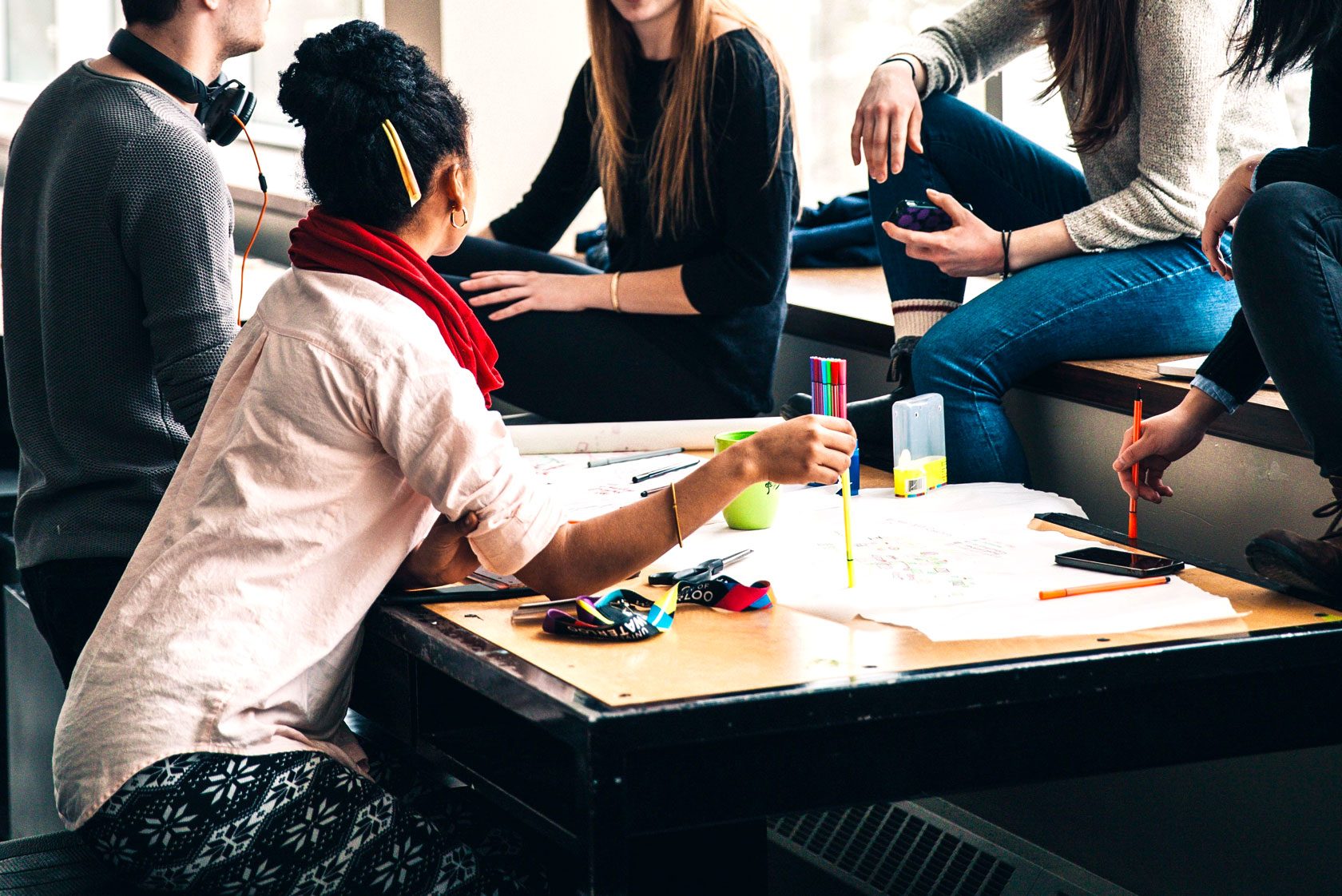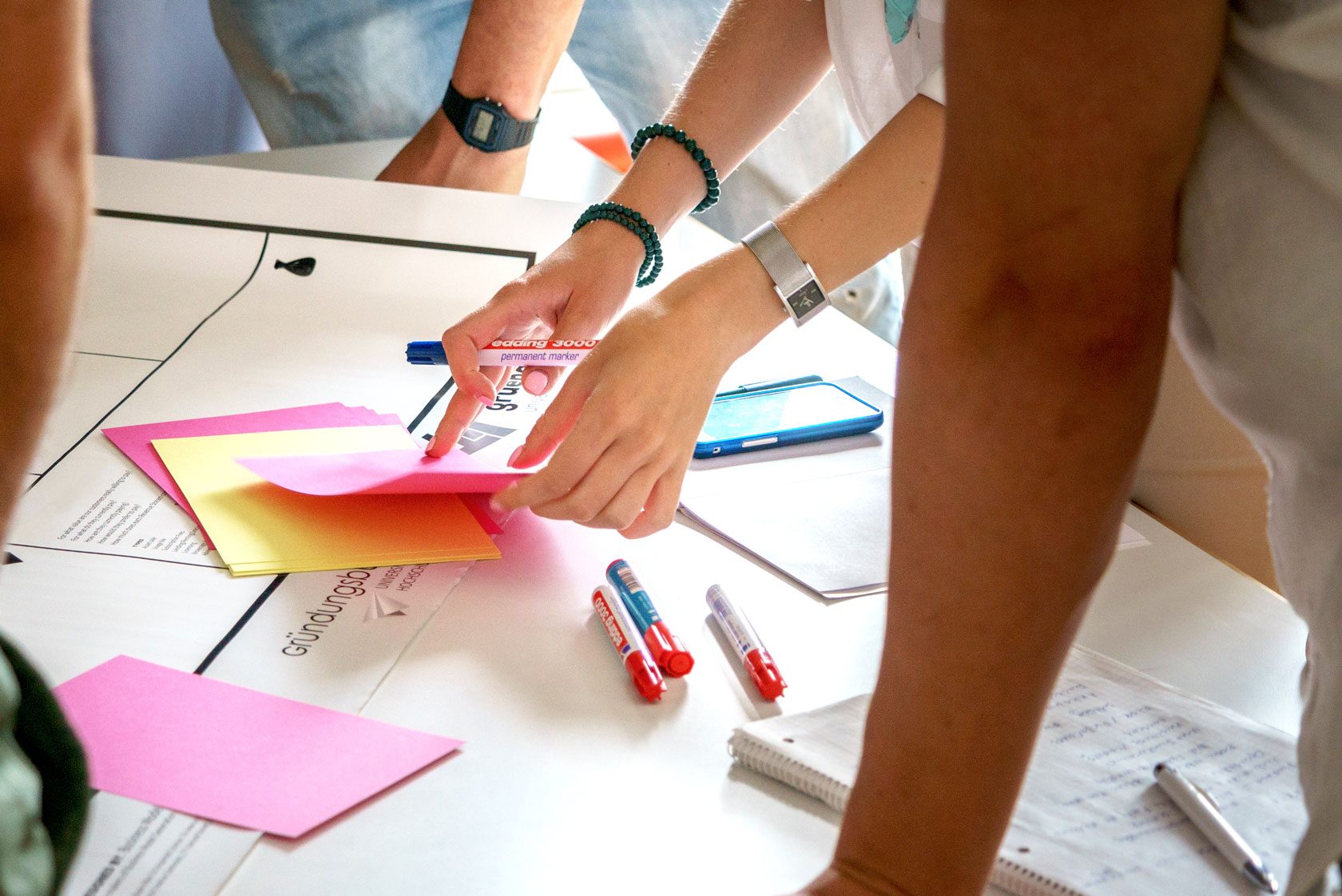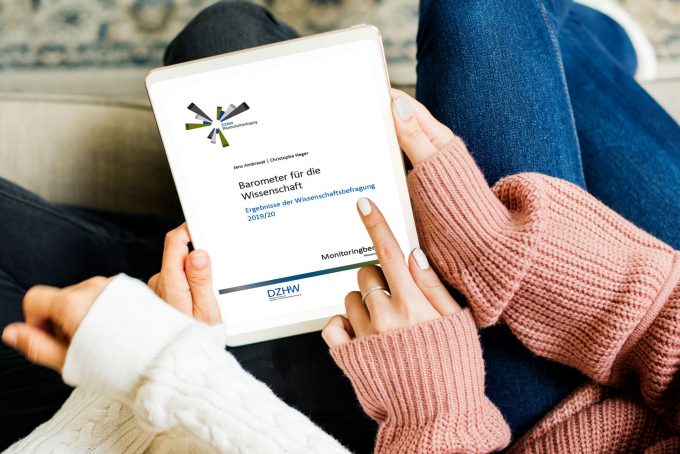
Art of Hosting: Operating System for Open Science and Citizen Science?
The Art of Hosting comprises the attitude and appropriate methods for creating a culture of good interaction and cooperation. Therefore the art of hosting provides a suitable framework for open science and in particular citizen science.
The 24/01/2018 Art of Hosting trial-course organised by PerLe – Projekt erfolgreiches Lehren und Lernen of the Kiel Christian-Albrechts-University, gave us the impetus to present the advantages of the Art of Hosting in this blog. This is because the Art of Hosting provides an appropriate framework and a methodology toolbox for the promotion of cooperation in open science and more particularly in the area of citizen science. But what exactly is the Art of Hosting?
Attitude and operating system for cooperation
The Art of Hosting can be described as the art of facilitating good conversations as a host. In this way, the Art of Hosting also constitutes an appropriate leadership instrument (The Art of Participatory Leadership). With the Art of Hosting, innovative solutions based on personal experience, dialogue and moderation can be created jointly for complex challenges.
The Art of Hosting acts as a kind of operating system for cooperation. Emphasis is therefore put on collective wisdom and the ability of groups to organise themselves and these are then used for the attainment of good results. Key among all these are one’s own attitude as a host and the establishment of a culture for good conversations and good cooperation. The hosts and the guests view themselves as a community of practice. The key question is: “How can I as a host create room for interaction?”
Tools of the Art of Hosting
The Art of Hosting starts with one central burning issue. Putting focus on such a relevant issue for all stakeholders is a worthwhile venture for citizen science projects as well. A combination of powerful participatory methods is used in the Art of Hosting to examine this issue.
Among the basic methods of the Art of Hosting are:
- Circle
- World Café
- Open Space
- Appreciative Inquiry
The circle as the basic form of all participatory processes ensures that we meet at least at the beginning and the end of the Art of Hosting.
At the World Café conversations take place in small groups seated at tables. In this way it is possible to work with participants even in very large groups. With a World café it is possible to shed light on what a group thinks and feels with regard to a given topic. After every round of discussions, one person from each group will remain seated at the respective table as a “host” while all the other participants move to other tables. In this way, the threads of conversation from the many discussion groups become interwoven.
Open Space Technology is very well suited for harnessing the potential attributes of a heterogeneous group for purposes of working on challenges at hand. After all it seeks to ensure that all its thoughts and ideas contribute to an overriding issue. All participants are encouraged to bring topics and questions for discussion. They are requested in the subsequent session phases to take part exclusively in the discussion groups they are interested in. This kind of freedom promotes enthusiasm and engagement among the participants and results are achieved within the shortest time possible.
One of the four principles of open space is: “Regardless of the type of people who come, they are always the right people.” This principle also helps to inculcate in us an appreciative attitude towards other people in the context of citizen science.
With regard to the method of the appreciative inquiry we focus on the positive aspects. Instead of merely asking: “What is the problem?” and then harping on it, we ask: “What works already and how can we get more of it?”
Four dimensions of the Art of Hosting
The four dimensions of the Art of Hosting help to sharpen awareness for the various processes: During the art of hosting process it is good to keep track of the subject matter one is handling at any given moment, and to maintain one’s balance. This contributes to a more conducive environment for collaboration and learning:
- Make your presence felt as an individual: “Hosting” yourself, cautiously and attentively being present in the here and now and, in between, reminding yourself consistently of the reason for your own presence, contributes to the fact that you will draw the desired benefit from the process and interact well with others.
- Take part in conversations: Get involved as a learner or a listener. Approach even persons of a different background, different views or ideas with an open-minded attitude.
- Invite yourself to conversations: Call upon and invite people, encourage others to participate, create and arrange the physical space for the conversation, record results.
- Contribute to the community of learners: Learn together, practise continuously in order to build and improve relationships and abilities, be involved in the co-creation process.
Diverse applications – even for open science
The Art of Hosting is being used in a number of sectors and by different social groups ranging from the private sector via non-governmental organisations, citizens’ coalitions up to public service and the European Commission.
The attitude conveyed in the Art of Hosting is useful even in the context of citizen science. This includes the chaordic path which forms one of the main concepts underlying the Art of Hosting: Chaos and order are permitted and promoted in equal measure. This is so because the creative field, which we are trying to create through hosting, is said to lie in the intersection between chaos and order. This is where creativity, innovation and learning take place ultimately. This also suits the approach of citizen science because the integration of foreigners and the local citizens will hardly take place in a completely organised fashion. In this respect it is important for us to use the Art of Hosting approach to prepare ourselves well in advance for the fact that chaos will eventually happen – and that it is incumbent upon us to welcome exactly this chaos and use it productively.
Therefore the Art of Hosting can strengthen real cooperation and co-creation jointly with the citizens within the context of citizen science.
Beyond the realm of citizen science, attitude and methods conveyed along with the Art of Hosting are also suitable for other aspects of open science. After all its ultimate purpose consists in generally supporting real cooperation.
Additional information: Art of Hosting
View Comments

Science Shops: New Drive for and by Citizen Science?
Science shops bridge the gap between science and society, and are therefore able to...



